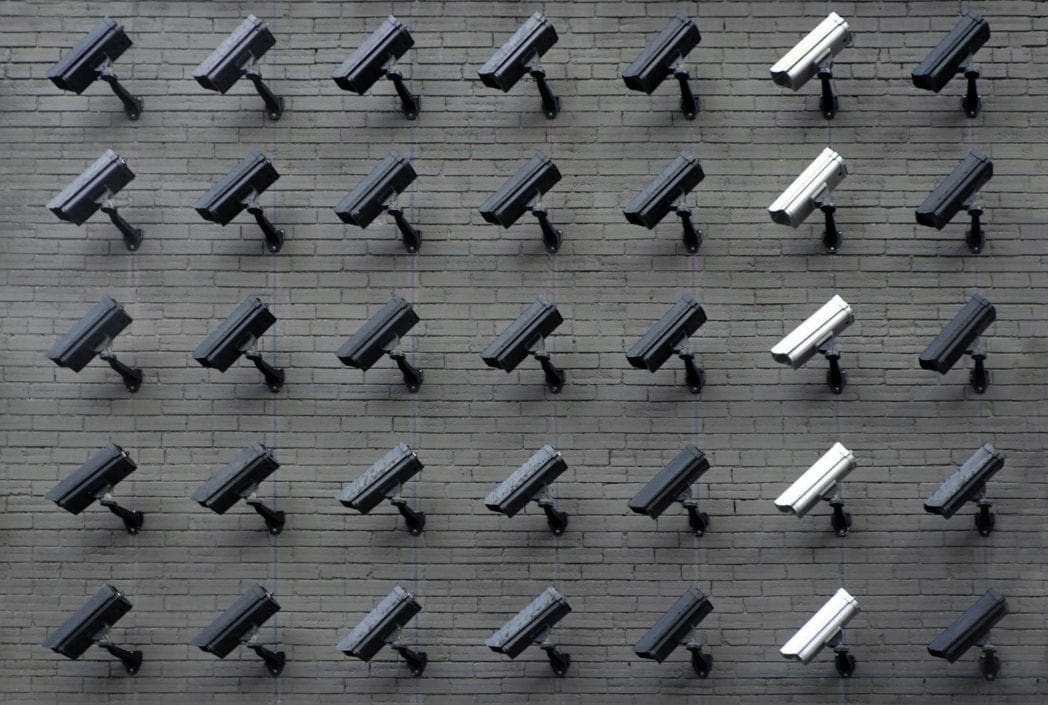As Americans nobly try to decipher what’s true or false in this year’s presidential debates, they won’t hear a peep about one of the biggest threats to liberty: secretive mass surveillance. That would require a third voice on the stage.

Rampant violations of Americans’ rights against unlawful searches are set to continue unquestioned at the highest levels in the land of the free. That is the result of a powerful bipartisan consensus dating back to at least President George W. Bush and shared by presidents Donald Trump and Barack Obama, not to mention leaders of Congress, over the last two decades.
The power to collect bulk personal data of Americans and then place those individuals on government lists is irresistible. Obama paid lip service to civil liberties advocacy groups on the campaign trail, but as president, he didn’t shut down what Bush helped establish. The same can be said for Trump.
In just a few months, Trump will be scheduled to debate his Democratic opponent, who will be Joe Biden if he is officially nominated and not replaced over health concerns. Of course, Biden won’t have any credibility in going after Trump for his new national security watchlist that includes Americans with no connections to terrorism. More on that program in a minute.
Trump would sooner bring up runaway surveillance power in a debate against Biden, but only within the parameters of how the Obama administration used a phony Russian collusion narrative as a pretext to spy on and pursue members of the 2016 Trump campaign.
When it comes to impacts on average Americans, Trump would have us believe that he has all the right people in charge of mass surveillance programs, unlike other presidents did or would. Every president says that though.
Following the 9/11 terrorist attacks, Bush signed an executive order launching the warrantless wiretapping program of the National Security Agency. It covered virtually every single American and remained secret for years until a New York Times exposé on the program in December 2005. The Times had the story a full year prior but was pressured into not reporting it out of so-called national security concerns.
In August 2006, the federal court case ACLU vs. NSA was ruled in the ACLU’s favor by a district judge who found that Bush’s mass surveillance program violated the Fourth Amendment of the Bill of Rights, which protects citizens from unreasonable searches. In 2007, the president allowed his program to expire, but it was transferred to the Foreign Intelligence Surveillance Court, where the powers were expanded further in 2008.
By the time Obama became president, it was already clear that the warrantless wiretap programs would remain largely intact. As a U.S. senator, Obama voted in favor of reauthorizing the Patriot Act, which among other broad powers lets FBI agents write their own search warrants instead of going to a judge. He also voted to extend the Foreign Intelligence Surveillance Act, adding legal immunity for giant telecom corporations that shared Americans’ data with the government.
In one of Obama’s last acts as president, he signed an executive order expanding mass surveillance powers with regard to sharing information on Americans among various agencies of the government.
Trump has had a different orientation toward the surveillance state, but several failed attempts at reform in Congress have not seen strong support from the administration. Recently, an amendment to bar the FBI from obtaining internet histories of Americans without a warrant was defeated in the Senate. They were short just one vote for a modest, partial reform.
Despite Trump’s verbal attacks on the “deep state,” his administration has created a new secret national security watchlist that includes Americans with no terrorism ties. Government officials told Newsweek that the list has the potential to contain thousands of Americans in over a hundred cities, merely for being suspected of a crime and being associated with “transnational” criminal activity. A similar program was used in the 9/11 era, but this one is adapted to a world of social media and smartphones.
None of this will be brought to light in the presidential debates this year, for a couple of reasons primarily. There is, as stated before, the clear risk of being labeled a hypocrite for pointing out programs supported by both major political parties. The other reason is that there won’t be a third voice on the debate stage who has a clear record against these programs.
That third voice should be Libertarian Party presidential nominee Jo Jorgenson, a psychology professor who will be the only other candidate on the ballot in all 50 states. But there is little hope that she will be given the opportunity to raise the level of debate and Americans’ knowledge of the issue of secret mass surveillance.
That doesn’t mean Americans are helpless in defending their freedom and privacy. At the state and community levels, citizens can get involved by telling their representatives they want a law or ordinance that blocks any local aid to the federal government in pursuance of these mass data collections.
Hopefully, by the time the next presidential election comes around, robust national debate and real reform will follow the lead of local efforts to enforce the Constitution and protect liberty.

























